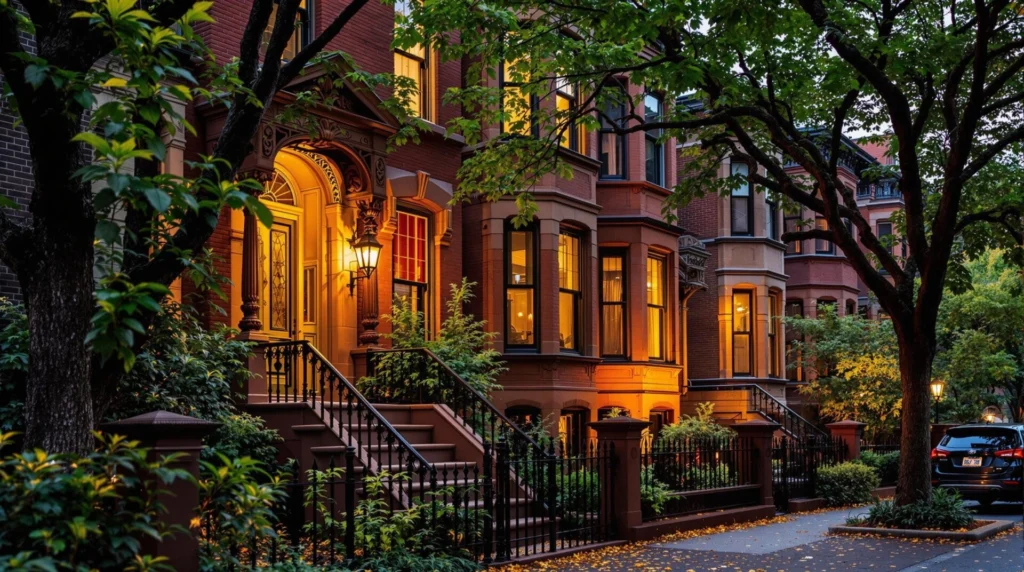Key Takeaways
- Trump’s proposed $5 million “gold card” visa could replace the EB-5 program, allowing wealthy investors to buy U.S. citizenship.
- Critics warn the program could open the U.S. to kleptocrats and corrupt oligarchs, reigniting concerns about foreign influence.
- The influx of wealthy immigrants may drive up luxury housing prices, creating opportunities for high-end real estate investors while raising affordability concerns.

A New Avenue for Wealthy Investors
In a bold move to tackle the escalating national debt, President Donald Trump has unveiled a “gold card” visa initiative, offering affluent foreign investors a pathway to U.S. citizenship for a $5 million investment.
This proposal aims to replace the existing EB-5 Immigrant Investor Program, which requires a minimum investment of $1 million and the creation of at least ten jobs.
The “gold card” visa is designed to attract high-net-worth individuals by providing green card privileges coupled with a direct route to citizenship.
President Trump expressed optimism about the program’s potential, stating, “We are going to be selling a gold card… It’s going to give you green card privileges plus it’s going to be a route to (American) citizenship, and wealthy people would be coming into our country by buying this card.”
Commerce Secretary Howard Lutnick echoed this sentiment, criticizing the EB-5 program for its inefficiencies and highlighting the anticipated benefits of the new initiative.
He remarked, “The EB-5 program… it was full of nonsense, make-believe and fraud… we’re going to end the EB-5 program. We’re going to replace it with the Trump gold card.”
A Gift to the Global Kleptocracy?
However, not everyone is convinced that Trump’s new visa initiative is a sound economic strategy.
Casey Michel, Director of the Combating Kleptocracy Program at the Human Rights Foundation, argues that this program could become an open door for corrupt oligarchs to infiltrate the U.S. economy.
In his scathing analysis for The Moscow Times, Michel warns that Trump’s move “drove a stake through all of the momentum toward finally ending these schemes and removing one of the best tools oligarchs in Russia and elsewhere have to inject themselves into democratic societies.”
Michel also points to the dangers of wealthy foreign elites using U.S. residency to shield themselves from legal scrutiny, stating, “This is nothing less than an open invitation for Putin’s cronies to launder their reputations and their money on American soil.”
He emphasizes that the U.S. had been making progress in shutting down such avenues for illicit finance following Russia’s invasion of Ukraine, but now, “Trump has returned the U.S. to the bad old days of welcoming oligarchic wealth—irrespective of where that money comes from—and of making the world safe for oligarchy, regardless of the cost.”
This criticism is further intensified by Trump’s own remarks when asked if Russian oligarchs would be eligible for the “gold card” visa.
Rather than addressing concerns about foreign influence, he simply shrugged and said, “Yeah, possible. Hey, I know some Russian oligarchs that are very nice people.”
Implications for the Real Estate Market
For real estate investors, the introduction of the “gold card” visa could have significant ramifications.
The influx of wealthy immigrants may drive demand in the luxury housing market, potentially leading to increased property values in high-end neighborhoods.
This surge could present lucrative opportunities for investors focusing on upscale real estate developments. With rising demand for luxury properties, high-end developers stand to benefit from premium pricing and increased sales. Investors who strategically position themselves in this market may see returns that rival or even surpass Trump’s real estate earnings. As affluent buyers seek exclusivity and sophistication, upscale projects in prime locations are likely to command significant attention.
However, there are concerns about the broader impact on housing affordability.
Similar programs in countries like Portugal and Greece have led to substantial hikes in property prices, making it challenging for local residents to afford housing.
Real estate experts caution that if the “gold card” program allows investments in real estate, it could exacerbate the housing affordability crisis in the U.S., especially in prime locations.
Potential Economic Benefits
Beyond the real estate sector, the “gold card” visa is anticipated to stimulate the U.S. economy by attracting substantial foreign capital.
RELATED CONTENT
President Trump suggested that selling one million of these visas could generate $5 trillion, which could be utilized to reduce the national debt.
He noted, “If we sell a million, that’s $5 trillion dollars… I think we will sell a lot because I think there’s really a thirst.”
Assessment
The proposed “gold card” visa represents a strategic effort to attract wealthy investors to the United States, with potential benefits for the real estate market and the broader economy.
While the initiative could drive growth in the luxury property sector and contribute to debt reduction, it also raises concerns about housing affordability and the need for rigorous vetting processes to prevent misuse.
Real estate investors should monitor the development of this program closely, as it may present both opportunities and challenges in the evolving market landscape.





















